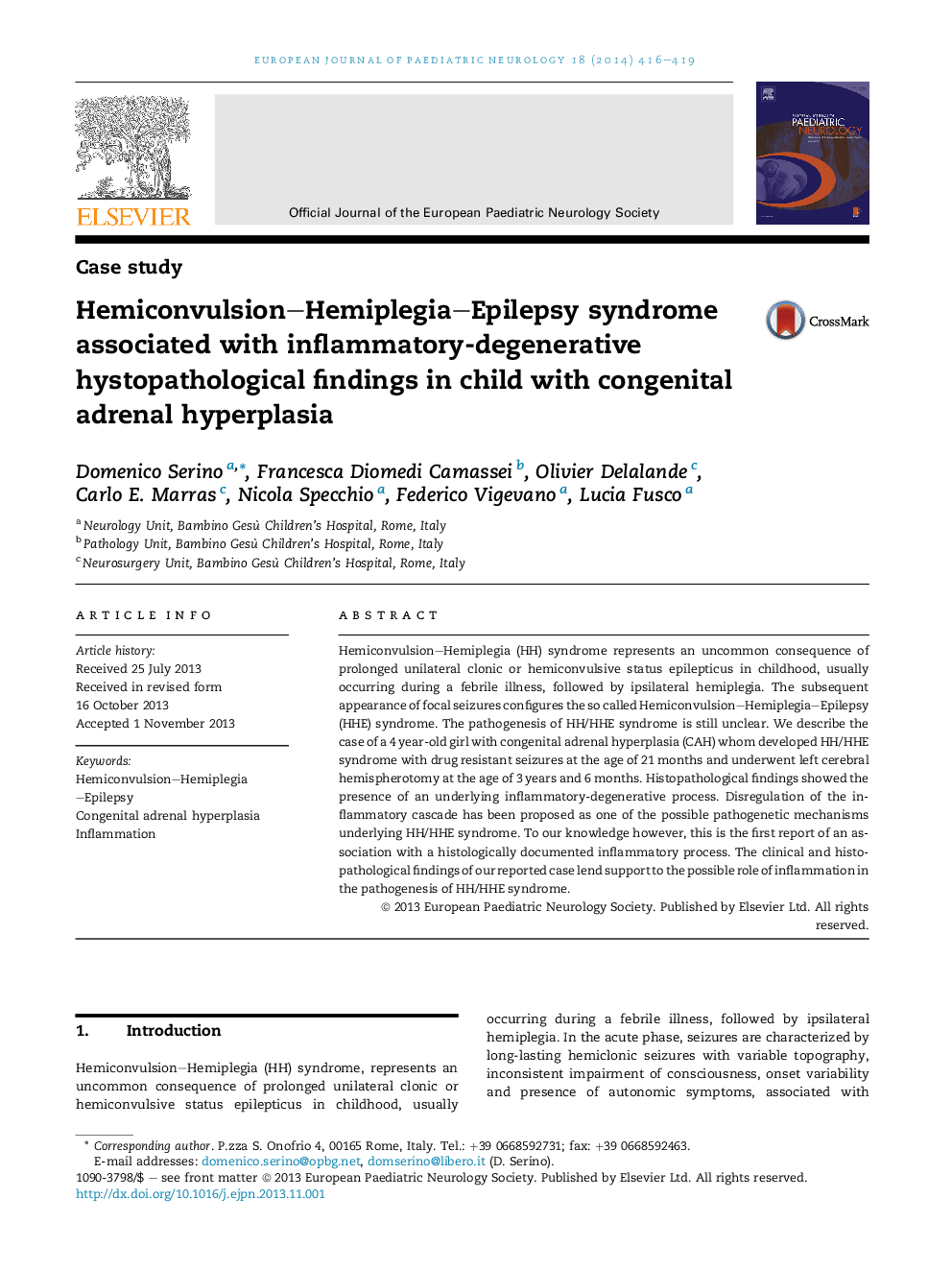| Article ID | Journal | Published Year | Pages | File Type |
|---|---|---|---|---|
| 6016643 | European Journal of Paediatric Neurology | 2014 | 4 Pages |
Abstract
Hemiconvulsion-Hemiplegia (HH) syndrome represents an uncommon consequence of prolonged unilateral clonic or hemiconvulsive status epilepticus in childhood, usually occurring during a febrile illness, followed by ipsilateral hemiplegia. The subsequent appearance of focal seizures configures the so called Hemiconvulsion-Hemiplegia-Epilepsy (HHE) syndrome. The pathogenesis of HH/HHE syndrome is still unclear. We describe the case of a 4 year-old girl with congenital adrenal hyperplasia (CAH) whom developed HH/HHE syndrome with drug resistant seizures at the age of 21 months and underwent left cerebral hemispherotomy at the age of 3 years and 6 months. Histopathological findings showed the presence of an underlying inflammatory-degenerative process. Disregulation of the inflammatory cascade has been proposed as one of the possible pathogenetic mechanisms underlying HH/HHE syndrome. To our knowledge however, this is the first report of an association with a histologically documented inflammatory process. The clinical and histopathological findings of our reported case lend support to the possible role of inflammation in the pathogenesis of HH/HHE syndrome.
Related Topics
Life Sciences
Neuroscience
Developmental Neuroscience
Authors
Domenico Serino, Francesca Diomedi Camassei, Olivier Delalande, Carlo E. Marras, Nicola Specchio, Federico Vigevano, Lucia Fusco,
